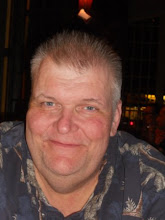
Bicentennial Minutes
I woke up last night, or rather this morning at like 3AM and could not get this out of my head. I so remember these every night for like two and a half years.
Bicentennial Minutes was the name of a series of short educational American television segments commemorating the bicentennial of the American Revolution. The segments were produced by the CBS Television Network and broadcast nightly from July 4, 1974, until December 31, 1976. (The series was originally slated to end on July 4, 1976, but was extended to the end of the year.)
The series was created by Ethel Winant and Louis Friedman of CBS, who had overcome the objections of network executives who considered it to be an unworthy use of program time. In 1976, the series received an Emmy Award in the category of Special Classification of Outstanding Program and Individual Achievement.
The videotaped segments were one minute long and were broadcast each night during prime time hours, generally at approximately 8:57 P.M. Eastern time. The format of the segments did not change, although each segment featured a different narrator, often a CBS network television star. The narrator, after introducing himself or herself, would state "This is a Bicentennial Minute," followed by the phrase "Two hundred years ago today..." and a description a historical event or personage prominent on that particular date two hundred years ago during the American Revolution. The segment would close with the narrator saying, "I'm (his/her name), and that's the way it was." This was an offhand reference to the close of the weeknight CBS Evening News with Walter Cronkite, who always ended each news telecast by saying, "And that's the way it is."
The Bicentennial Minute on July 3, 1976 was narrated by Vice President Nelson Rockefeller. The Bicentennial Minute on July 4, 1976 was narrated by First Lady Betty Ford. The final Bicentennial Minute, broadcast on December 31, 1976, was narrated by President Gerald Ford. (This was also the longest Bicentennial minute.) After the series ended, the time slot of the Bicentennial Minute came to be occupied by a brief synopsis of news headlines ("Newsbreak") read by a CBS anchor.
*With thanks to Wikipedia for the information!
I woke up last night, or rather this morning at like 3AM and could not get this out of my head. I so remember these every night for like two and a half years.
Bicentennial Minutes was the name of a series of short educational American television segments commemorating the bicentennial of the American Revolution. The segments were produced by the CBS Television Network and broadcast nightly from July 4, 1974, until December 31, 1976. (The series was originally slated to end on July 4, 1976, but was extended to the end of the year.)
The series was created by Ethel Winant and Louis Friedman of CBS, who had overcome the objections of network executives who considered it to be an unworthy use of program time. In 1976, the series received an Emmy Award in the category of Special Classification of Outstanding Program and Individual Achievement.
The videotaped segments were one minute long and were broadcast each night during prime time hours, generally at approximately 8:57 P.M. Eastern time. The format of the segments did not change, although each segment featured a different narrator, often a CBS network television star. The narrator, after introducing himself or herself, would state "This is a Bicentennial Minute," followed by the phrase "Two hundred years ago today..." and a description a historical event or personage prominent on that particular date two hundred years ago during the American Revolution. The segment would close with the narrator saying, "I'm (his/her name), and that's the way it was." This was an offhand reference to the close of the weeknight CBS Evening News with Walter Cronkite, who always ended each news telecast by saying, "And that's the way it is."
The Bicentennial Minute on July 3, 1976 was narrated by Vice President Nelson Rockefeller. The Bicentennial Minute on July 4, 1976 was narrated by First Lady Betty Ford. The final Bicentennial Minute, broadcast on December 31, 1976, was narrated by President Gerald Ford. (This was also the longest Bicentennial minute.) After the series ended, the time slot of the Bicentennial Minute came to be occupied by a brief synopsis of news headlines ("Newsbreak") read by a CBS anchor.
*With thanks to Wikipedia for the information!

No comments:
Post a Comment